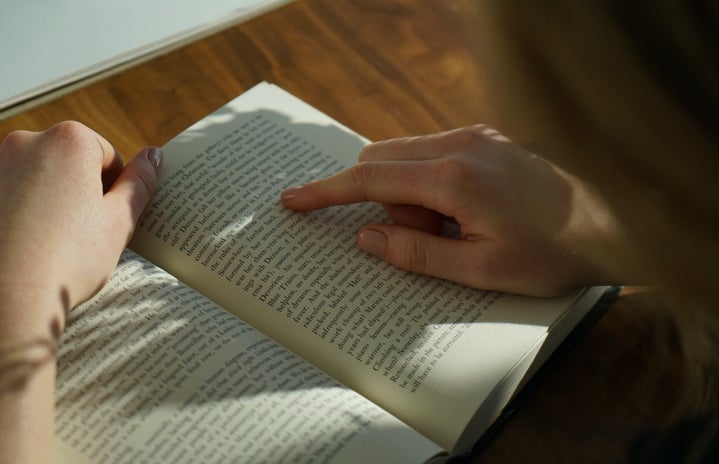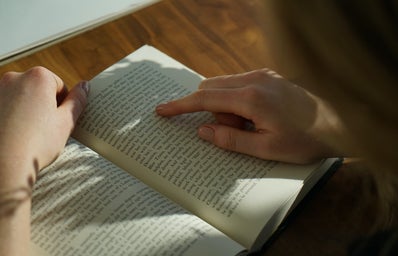Trigger Warnings: sexual violence, abuse, self-harm, suicide.
This Valentine’s day, I couldn’t help but think about one of the most (arguably) epic yet tragic love stories I’ve had the chance to read. Hanya Yanagihara’s A Little Life shows us the evolution of Jude and Willem’s friendship to romantic love. In thinking over this text, I began to wonder about the repercussions of the relationship between Jude and Willem, and the novel as a whole.
For Christmas, my family decided that we didn’t need any more extravagant presents. In lieu of gifts, we decided to opt for a book exchange. Using the Elfster App, we each created “Wish Lists” of things we’d been wanting to read. Among my picks were: Red Comet: The Short Life and Blazing Art of Sylvia Plath by Heather L. Clark, The Little Friend by Donna Tartt (my favorite author!), and On Earth We’re Briefly Gorgeous by Ocean Vuong, and, of course, A Little Life.
On Christmas Day, I was excited to see that I’d been gifted “A Little Life” by my Uncle. As surprised as I was by how long the story is, I’d heard many good things from friends (and BookTok) so I was excited to dig in. Some of my family members, however, had already finished the novel, and they warned me that it was a very difficult read. I think that sometimes sources like TikTok and Instagram can be so anti-spoiler that they fail to inform readers about the true contents of texts. In aiming to avoid spoilers, we also avoid discussing the disturbing and hard-to-digest aspects of books, movies, television, etc.
Yanagihara’s novel centers around the life of a man named Jude St. Francis, beginning in his college years and utilizing flashbacks to tell his story. In the beginning, we know that Jude is reserved, kind, and extremely intelligent. He also walks with a painful limp. In short, throughout the novel, the reader finds out that Jude was subjected to horrific sexual abuse in his childhood and adolescence that shapes the abusive relationships of his adulthood and manifests in Jude’s severe self-hatred. Jude does find success in his career as a lawyer and finds love and companionship through the characters of Willem, Andy, and Harold. Throughout the narrative, we too fall in love with Jude. His endearing personality and brilliance are easy to admire.
At times, throughout the almost 800-page novel, I found the descriptions of Jude’s abuse to be too much. I’d find myself slamming the book shut or getting choked up. Graphic depictions of rape, self-harm, and violence made me wonder whether the novel aimed to portray the reality of abuse or if it had qualities of “trauma porn” (see this great article: https://missionmag.org/trauma-porn-unhealthy-obsession/). Is it important to see the true damage that extreme trauma has on the mind and life? Or is it excessive?
I think we see this a lot in the mainstream media today. Shows like “Euphoria” depict violence and abuse and are also criticized for romanticizing these issues. It’s tough to discern between the necessary but hard-to-watch and the unneeded glamorization of trauma. However, both “Euphoria” and “A Little Life” don’t shy away from showing the good, bad, and ugly. Rue’s addiction destroys every aspect of her life. Jude’s unjustifiable abuse at the hands of those who were supposed to care for him impacts his career, relationships, and self-image. But is it really necessary to depict, in high detail, the graphic images of Jude’s self-harm? Is Euphoria’s portrayal of the sexual relationships of underage characters excessive? Or are these things realistic aspects of true lives?
At the end of the day, I don’t really know. I know that there is definitely a line between telling a true and impactful story and benefiting from its shock-value. I told my friends that, in good conscience, I wasn’t sure if I could recommend that they read “A Little Life.” I struggled to find the words to describe the novel. The writing is, undoubtedly, beautiful. It’s detailed and complex, yet comprehensive. But the intimate details of Jude’s story were hard for me to read, and I’ve been lucky enough that I’ve never experienced anything close to what he has been through. I worry that the graphic portrayal of abuse could result in painful triggers or the re-emergence of traumatic experiences.
I do think that Jude’s story is extremely important and relevant today. However, before cracking the spine, I would recommend looking into the true content of the novel, spoilers and all.


